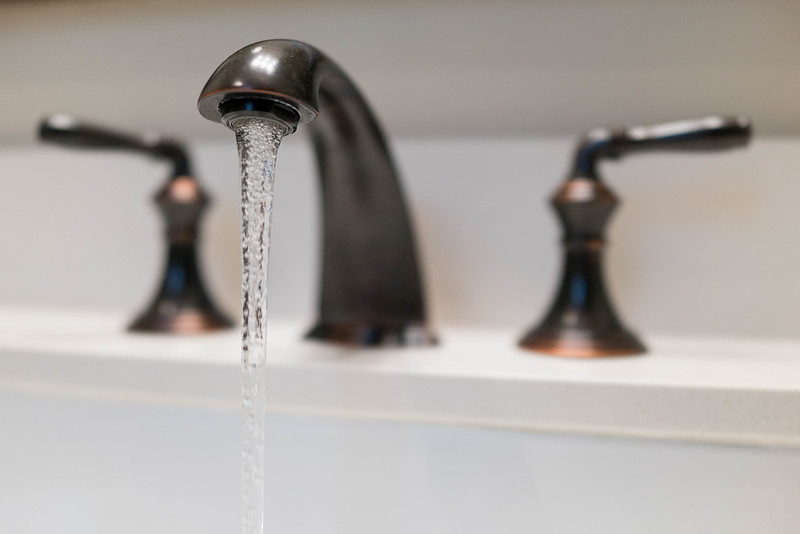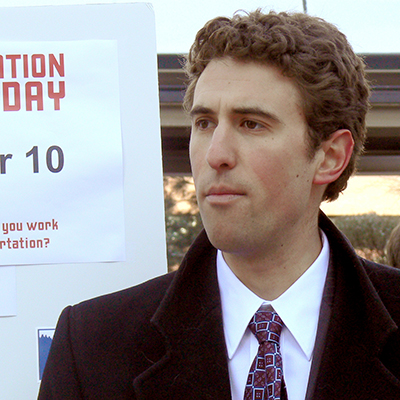
A conversation with Colorado Attorney General Phil Weiser as the Clean Water Act turns 50
We discussed an important Supreme Court case that could threaten clean water protections as well as his lawsuit to hold producers of dangerous PFAS ‘forever chemicals’ accountable
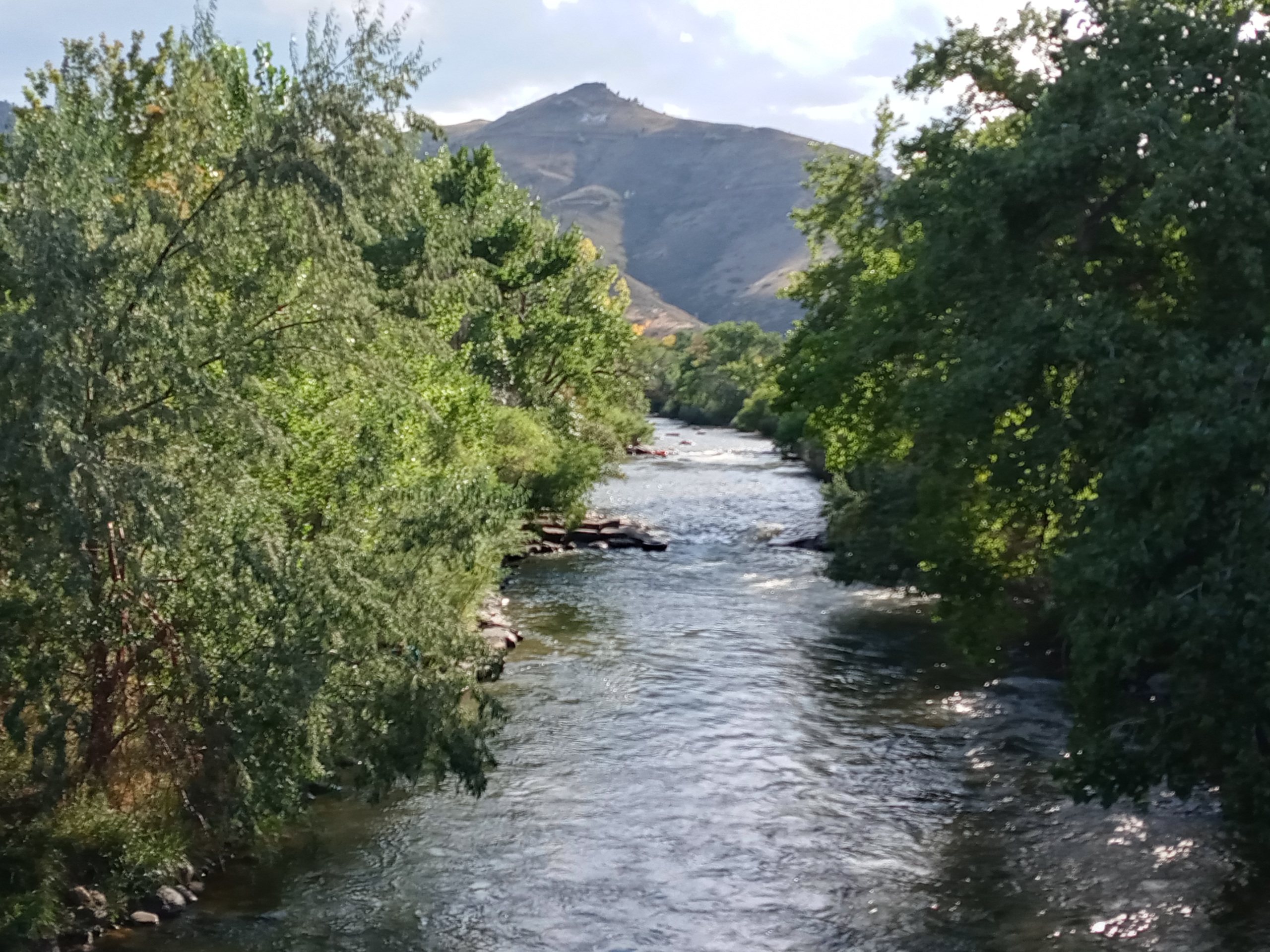
Tuesday, October 18 is the 50th Anniversary of the Clean Water Act, the nation’s bedrock clean water law. It envisioned that by 1985, our country would eliminate direct discharges of toxic pollution into our waterways.
Unfortunately, our recent report, Wasting our Waterways, found we haven’t hit that goal yet.
I spoke with Colorado Attorney General Phil Weiser about two actions he is taking to protect Colorado’s waterways.
Protections for Wetlands on the line in Sackett v. Environmental Protection Agency
On October 3rd, the Supreme Court justices heard arguments around Sackett v. Environmental Protection Agency.
The case centers around how far Clean Water Act protections extend.
For decades, the federal government has understood that to protect our waterways from degradation and pollution, you need to protect not just the mighty Colorado River but the many streams, creeks, wetlands, and arroyos that feed those rivers, even if some of those sources don’t carry water year-round.
Colorado has a lot of waterways that don’t carry water year-round. In Sackett, the plaintiffs are arguing these waterways should not be considered waterways, even though they feed our larger rivers and streams, and should not receive protections under the Clean Water Act.
In parts of the Southwest, nearly 80% of streams could lose protections if the Supreme Court sides with Sackett and the industries that want to develop and fill in wetlands or dump pollution in seasonal creeks.
Reducing the scope of clean water protections endangers drinking water for millions of Americans and threatens important wildlife habitat.
In my interview with the Attorney General, he explained why it was important to step up and in the Sackett case.
We know that maintaining clean water is core to public health…The risk of this case, the Sackett case, is waters in the states only means continuous, active waterways, which is a pretty narrow interpretation.Phil Weiser
Colorado Attorney General
Attorney General Weiser went on to argue that even if a waterway is intermittent, it can still carry contaminants and harmful materials into our larger rivers and have a damaging effect on our waterways and ecosystems.
Don’t worry, he’s not just making this case to me.
He’s actively engaging in the Sackett case, submitting his own brief to the Supreme Court in support of expansive Clean Water Act protections highlighting the direct impact here in Colorado.
Now it’s a waiting game. We anticipate a decision next year. If the EPA’s clean water authority is reduced, it likely means Colorado will have to consider state level protection.
Holding PFAS Producers Accountable for Forever Chemical Pollution
Besides the waters of the US Supreme Court case, I also spoke with Attorney General Weiser about his work to hold makers of dangerous PFAS accountable.
PFAS are a class of chemicals linked to serious health impacts like cancer, organ damage and suppression of the immune system.
These chemicals are designed to be water and stain resistant and nearly indestructible, which helps them earn the nickname ‘forever chemicals.’
And they are having a devastating impact on some Colorado communities’’ drinking water supply.
In February, the Colorado Attorney General’s office filed a lawsuit against 15 manufacturers of PFAS containing fire-fighting foam alleging the companies “knew or should have known their products harmed the environment and human health.”
I’m going to hold them accountable. The Duponts of the world knew better, should have known better, and need to be brought to justice and that’s what this litigation is about.Phil Weiser
Colorado Attorney General
Similarly to his work on opioids, the Attorney General expressed hope that we can remediate the damage that has been done and secure funding from these polluters to clean up our waterways.
When I asked about timing, the Attorney General explained a lot will depend on the other side – are they willing to admit they did something wrong and make it right.
He described one effort by a PFAS producer to divest its liability and stick it in a new company, something the Attorney General does not accept.
Fifty Years and Counting
Fifty years ago, we envisioned a world where our waterways would be safe enough to swim in, fish in and drink from. We’re not there yet.
But in 2022, it was nice to hear how Colorado’s top enforcement officer is working to defend that original vision of the Clean Water Act and take on new toxic chemical threats that have arisen.
Topics
Authors
Danny Katz
Executive Director, CoPIRG Foundation
Danny has been the director of CoPIRG for over a decade. Danny co-authored a groundbreaking report on the state’s transit, walking and biking needs and is a co-author of the annual “State of Recycling” report. He also helped write a 2016 Denver initiative to create a public matching campaign finance program and led the early effort to eliminate predatory payday loans in Colorado. Danny serves on the Colorado Department of Transportation's (CDOT) Efficiency and Accountability Committee, CDOT's Transit and Rail Advisory Committee, RTD's Reimagine Advisory Committee, the Denver Moves Everyone Think Tank, and the I-70 Collaborative Effort. Danny lobbies federal, state and local elected officials on transportation electrification, multimodal transportation, zero waste, consumer protection and public health issues. He appears frequently in local media outlets and is active in a number of coalitions. He resides in Denver with his family, where he enjoys biking and skiing, the neighborhood food scene and raising chickens.
Find Out More
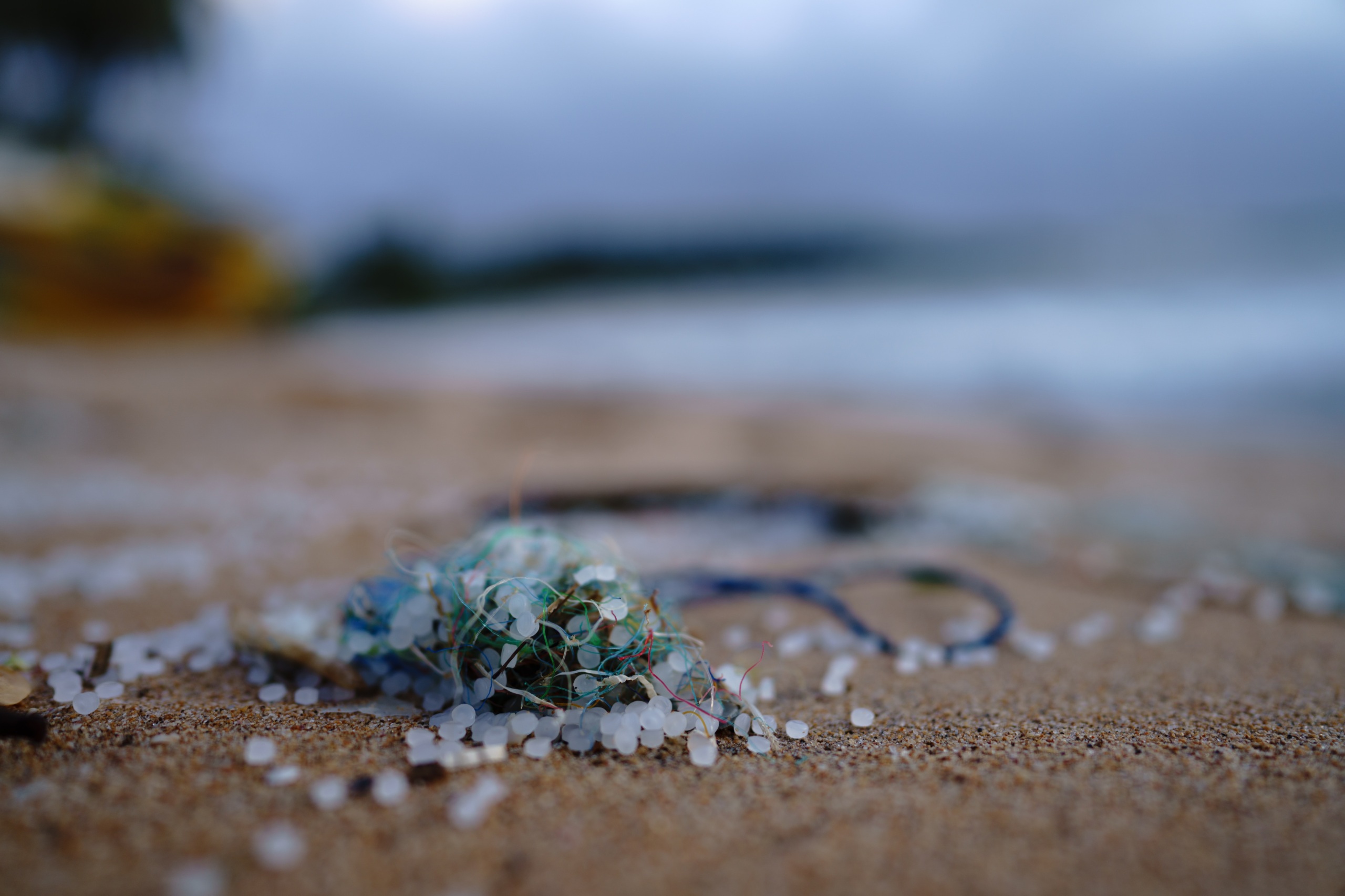
We’re campaigning for Microplastic Free Waters

A look back at what our unique network accomplished in 2023
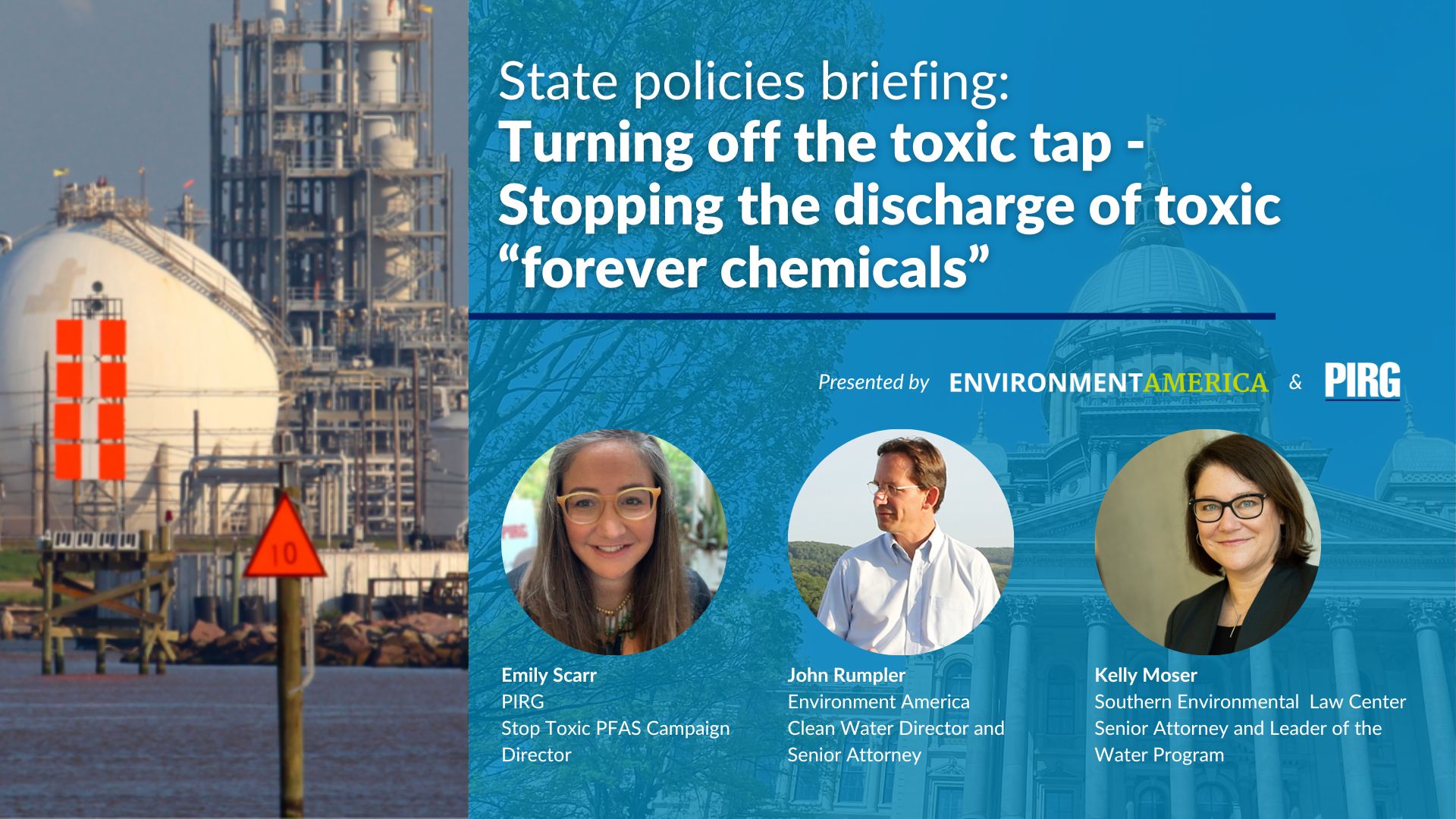
Event highlights role of states in stopping industries from dumping toxic PFAS
